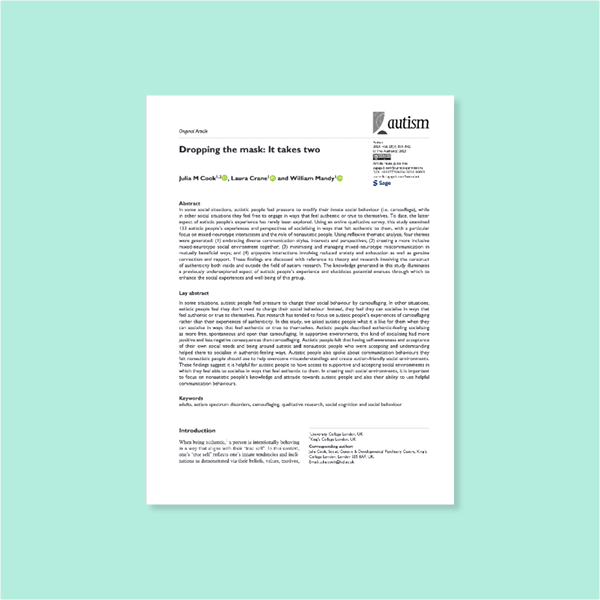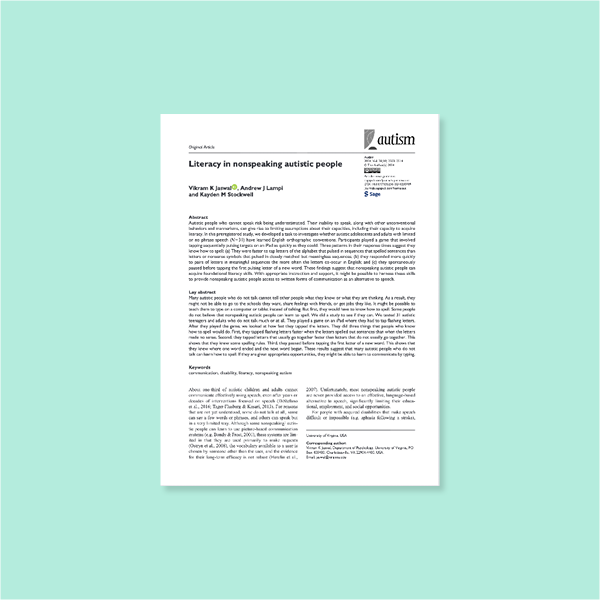 Image 1 of 1
Image 1 of 1


Autistic Adults Show Enhanced Generosity to Socially Distant Others
Forbes, Chaliani, Schilbach and Kalenscher (2022)
Sharing resources is fundamental and people tend to share resources more with individuals they feel close to. Generosity declines when social distance is increased, called social discounting and is influenced by both social traits and abilities, empathy and decision-making biases. This article investigated social discounting in Autism and found that Autistic adults were more generous than neurotypical participants. This was especially apparent towards socially distant others, such as strangers. Greater Autism-related differences in communication, social skills, and attention switching correlated with increased generosity. Additionally, the authors build on previous work that suggests Autistic individuals are less susceptible to framing effects (whether monetary decisions are framed as potential losses or gains). The authors results show that the differences seen in Autism can have consequences that are good for wider society.
Forbes, Chaliani, Schilbach and Kalenscher (2022)
Sharing resources is fundamental and people tend to share resources more with individuals they feel close to. Generosity declines when social distance is increased, called social discounting and is influenced by both social traits and abilities, empathy and decision-making biases. This article investigated social discounting in Autism and found that Autistic adults were more generous than neurotypical participants. This was especially apparent towards socially distant others, such as strangers. Greater Autism-related differences in communication, social skills, and attention switching correlated with increased generosity. Additionally, the authors build on previous work that suggests Autistic individuals are less susceptible to framing effects (whether monetary decisions are framed as potential losses or gains). The authors results show that the differences seen in Autism can have consequences that are good for wider society.






